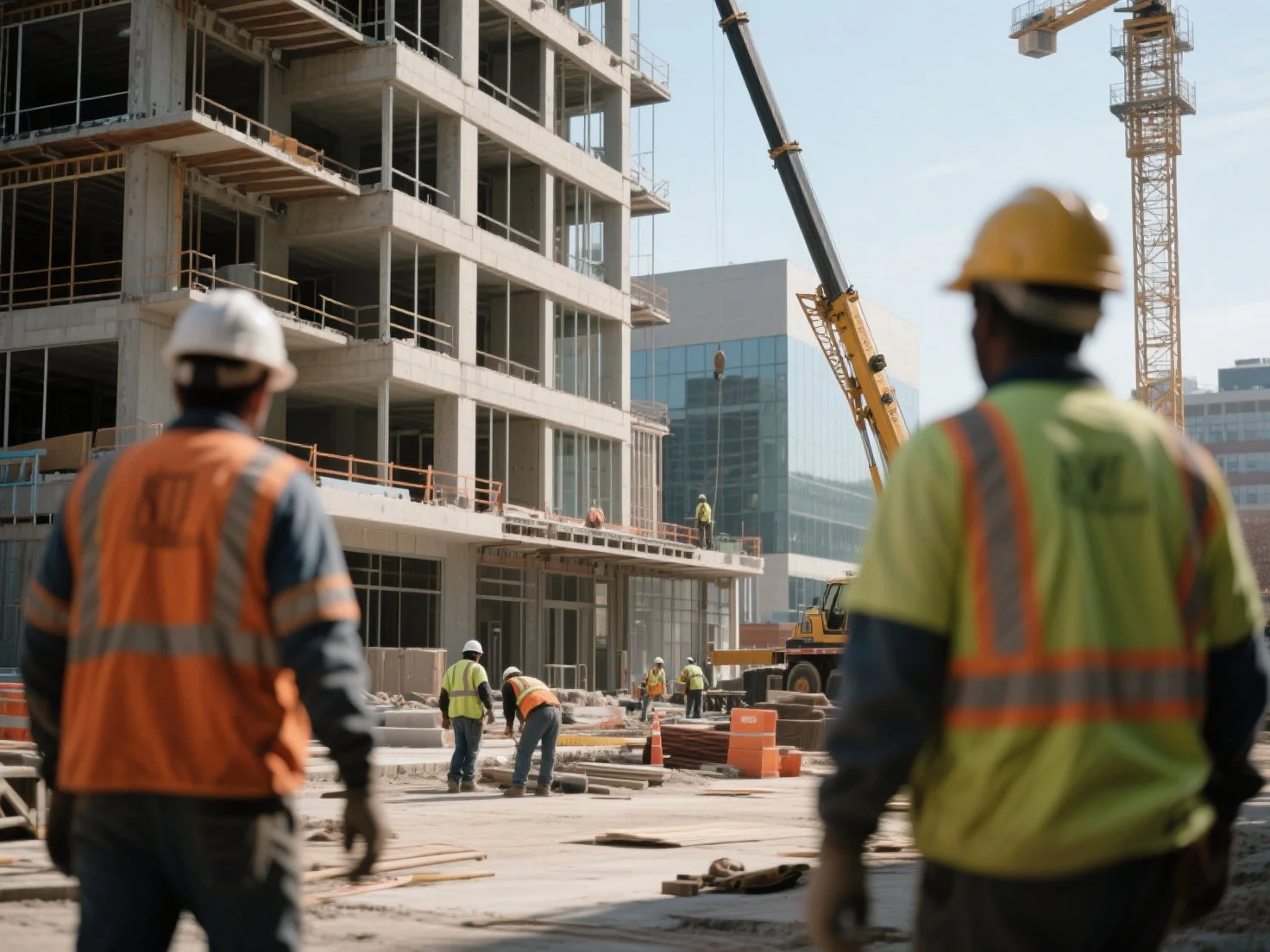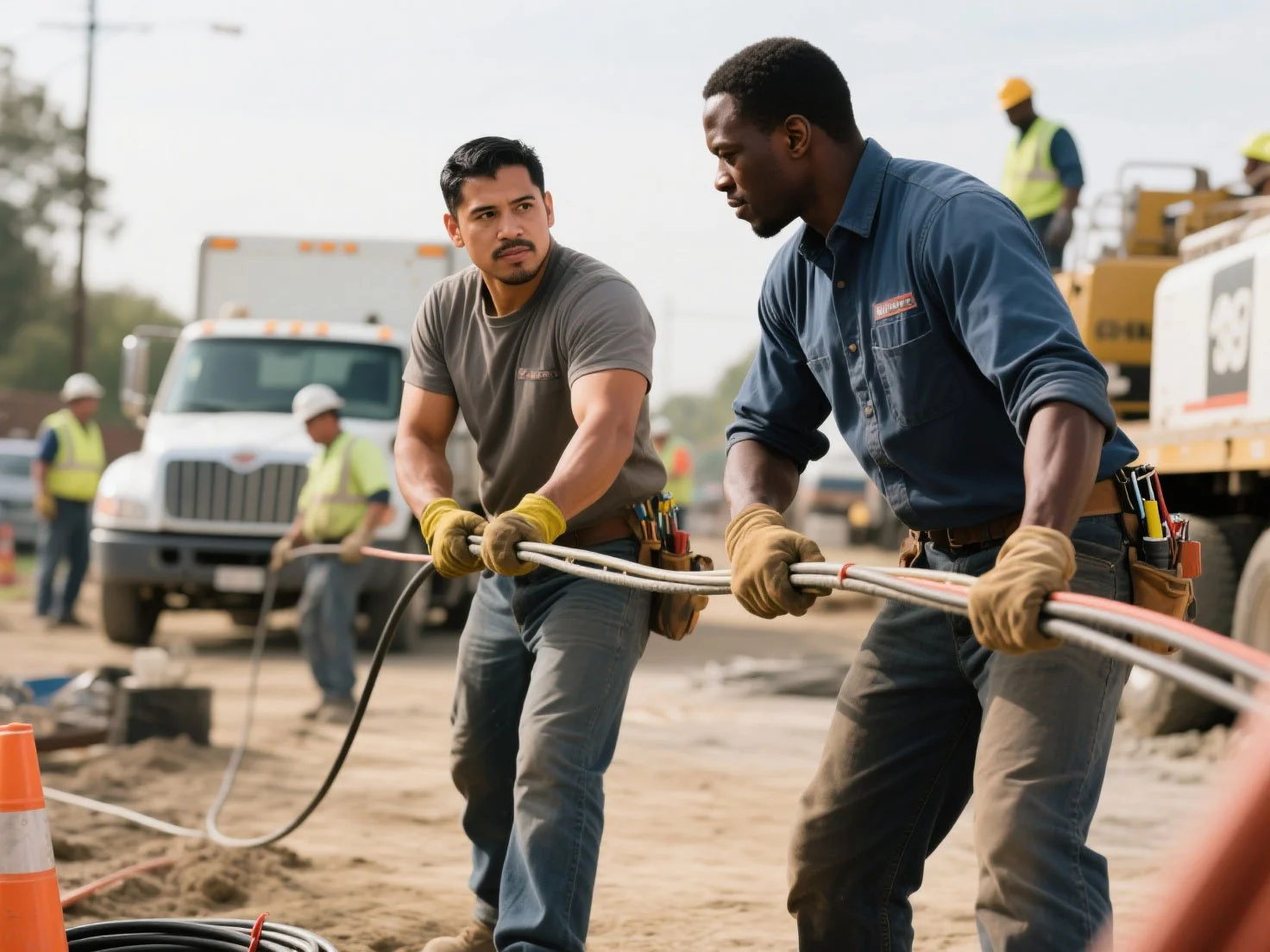How to Choose Construction Insurance Wisely?
Navigating the world of construction insurance can be daunting. With so many options, choosing the right policy is crucial. A well-chosen construction company insurance policy protects against financial losses and legal liabilities. It ensures your business remains secure and compliant.
Understanding the different types of insurance available is key. Each type offers unique coverage tailored to specific risks in the construction industry. This guide will help you make informed decisions. Learn how to select the best insurance for your construction projects.
Why Construction Insurance Matters?
Construction insurance plays a vital role in risk management. It shields your business from financial distress caused by accidents or damages. Without proper insurance, even minor setbacks can lead to significant financial losses.
Insurance also fosters trust with clients and partners. It demonstrates your commitment to safety and responsibility. Many clients require proof of insurance before commencing a project.
Here are key reasons why construction insurance is essential:
Protects against unexpected incidents and lawsuits.
Ensures compliance with industry regulations.
Enhances business reputation and client confidence.
Ignoring construction insurance can risk your business’s stability. It’s an investment in both protection and peace of mind.
Key Types of Construction Insurance Policies
In the construction industry, insurance policies cover a variety of risks. Selecting the right mix of policies is crucial. Each policy type targets different threats to your business.
Different projects require different insurance policies. Here's a list of main types:
General Liability Insurance
Workers' Compensation Insurance
Builder’s Risk Insurance
Professional Liability Insurance
Commercial Auto Insurance
Equipment and Tools Insurance
Pollution and Environmental Liability Insurance
Surety Bonds and Contract Insurance
Understanding these insurance types helps you safeguard your business. Tailor your choices to your specific projects and business needs. Don’t overlook the importance of comprehensive coverage.
General Liability Insurance
General Liability Insurance offers vital coverage for construction businesses. It protects against third-party injuries and property damage.
Why is this insurance essential?
Covers legal costs from accidental damages.
Protects against claims for bodily harm on-site.
Shield your business from costly lawsuits.
This insurance helps avoid significant financial losses. It’s a foundation policy that every construction company should consider. Peace of mind comes from knowing your liabilities are covered.
Workers’ Compensation Insurance
Workers’ Compensation Insurance is mandatory in most states. It covers employee injuries sustained on the job. This insurance safeguards both workers and employers.
Key benefits include:
Medical expenses for injured employees.
Wage replacement during recovery.
Protection from employee lawsuits.
Having this insurance is non-negotiable for compliance. Beyond legal needs, it demonstrates your commitment to worker safety. This policy builds trust and ensures workforce well-being.
Builder’s Risk Insurance
Builder’s Risk Insurance protects structures under construction. It covers losses due to weather, theft, or vandalism. This policy is essential for both residential and commercial projects.
Main points include:
Covers damages to unfinished buildings.
Protects materials and equipment on site.
Offers peace of mind against unforeseen events.
Investing in this policy ensures your project isn’t financially derailed. It’s a smart way to manage construction site risks effectively. Safeguard your investment with comprehensive builder’s risk coverage.
Professional Liability Insurance
Professional Liability Insurance protects against claims of negligence or errors. It's crucial for design professionals and consultants in construction.
Why this policy matters:
Covers design errors or omissions.
Protects against claims of failure to deliver services.
Shields from legal costs tied to professional advice.
This insurance provides a safety net for those offering expert services. It maintains your reputation and secures client trust. Ensure your business is covered for professional oversights.
Commercial Auto Insurance
Commercial Auto Insurance covers vehicles used for business purposes. It’s vital for companies that rely on transportation.
Key elements include:
Covers vehicle damage from accidents.
Protects against liability claims from vehicle use.
This insurance prevents financial strain from auto incidents. Protect your company’s assets with the right auto coverage. Ensure your fleet’s safety on the road.
Equipment and Tools Insurance
Equipment and Tools Insurance protects your valuable assets. It covers damage or theft of tools and equipment.
Important benefits are:
Covers repair or replacement costs.
Protects against financial loss from equipment failure.
This policy keeps your operations smooth. Invest in this coverage to ensure continuity and protect vital assets.
Pollution and Environmental Liability Insurance
Pollution and Environmental Liability Insurance shields against environmental damage claims. It's crucial for projects with potential ecological impacts.
Key coverage points are:
Includes cleanup costs for spills.
Covers liability from environmental harm.
This insurance safeguards against hefty fines and cleanup fees. Protect your business and the environment with this essential policy.
Surety Bonds and Contract Insurance
Surety Bonds and Contract Insurance ensure project completion. They offer financial guarantees to clients and investors.
Key benefits include:
Guarantees contract adherence.
Protects against project non-completion.
This insurance enhances credibility and trust. With it, you secure financial stability and client confidence. Choose this coverage for reliable project execution and trust-building.
Understanding Building Contractor Insurance Requirements
Insurance requirements for building contractors vary by state and project. Adhering to them is vital for legal compliance and project success. Understanding these requirements protects your interests.
Typical requirements might include:
General liability insurance for third-party damages.
Workers’ compensation for employee protection.
Builder’s risk insurance for project assets.
Each project may have unique needs. Thus, reviewing contracts for specific insurance clauses is important. Consult legal experts for accurate guidance on meeting these requirements. By doing so, you ensure compliance and safeguard your construction operations.
How to Assess Your Construction Insurance Needs?
Evaluating your construction insurance needs is crucial for effective risk management. Start by analyzing the types of projects you undertake. Identifying potential risks helps tailor your insurance coverage.
Consider the following factors:
Size and scope of your projects.
Project location and inherent environmental risks.
Number of employees and subcontractors involved.
These factors influence your insurance requirements. Consulting with professionals in insurance and risk management provides valuable insights. Tailor your policy to meet specific project demands and ensure comprehensive coverage. Regular reviews of your insurance needs help maintain optimal protection for your business operations.
Comparing Construction Insurance Quotes and Providers
When comparing construction insurance quotes, focus on both coverage and cost. Start by gathering quotes from multiple providers. This lets you identify price differences.
Consider the following aspects:
Coverage limits and exclusions.
Provider's reputation and financial stability.
Customer service and claims support.
These factors impact the overall value of your insurance policy. It’s not always best to choose the cheapest option. Instead, weigh the benefits against the premiums. Consulting with construction insurance brokers can streamline this process. They offer expert advice tailored to your specific needs. Taking time to research providers ensures you're getting the best protection for your investment.
Working with Construction Insurance Brokers
Construction insurance brokers can simplify your policy selection. They bring industry knowledge to the table. Their expertise ensures you find the right coverage for your needs.
Consider these benefits of working with a broker:
Access to multiple insurance providers.
Expert insights into policy terms.
Tailored advice for unique project requirements.
Brokers act as intermediaries between you and insurers. They navigate complex policies and negotiate better terms. Leveraging their expertise can lead to enhanced coverage options. This collaboration can make managing construction insurance more efficient, allowing you to focus on your core business operations.
Risk Management and Construction Safety: Reducing Insurance Costs
Effective risk management is vital in construction. Prioritizing construction safety can lower insurance premiums. By implementing safety programs, you minimize accidents and claims.
Consider these strategies to reduce costs:
Regular safety training for all workers.
Strict adherence to safety standards.
Use of protective gear on-site.
Proactively identifying potential hazards prevents mishaps. Insurance companies often offer discounts for safety-oriented practices. Investing in safety not only safeguards your team but also makes financial sense. Establishing a culture of safety in your company leads to fewer workplace incidents. This helps maintain a clean safety record, which keeps insurance costs manageable.
Common Exclusions and Pitfalls in Construction Insurance Policies
Construction insurance policies can have exclusions that may surprise you during claims. Understanding these exclusions is crucial to avoiding pitfalls.
Key exclusions to watch for:
Acts of terrorism.
Employee theft.
Wear and tear of equipment.
Review policy terms for any hidden clauses. Sometimes, inadequate coverage of specific risks leads to financial strain. Knowing what isn't covered helps in planning additional policies. Regular discussions with your insurer ensure no surprises later. Be proactive in understanding policy nuances, so your coverage aligns with all aspects of your projects.
Tips for Reviewing and Updating Your Construction Company Insurance Policy
Staying updated with your insurance policy can prevent significant gaps in coverage. Regular reviews are essential, especially after any major changes in your business operations.
Here's how to keep your insurance policy current:
Review policy annually.
Update for new projects.
Adjust coverage as needed.
Communicate changes in your business to your insurer promptly. Such discussions ensure your coverage stays relevant and effective. Being proactive keeps your business well-protected against unforeseen risks.
Frequently Asked Questions: What Insurance Does a Construction Company Need?
Understanding essential insurance needs for construction firms can be complex. Many business owners often seek clarity on mandatory coverages.
Typically, a construction company should consider:
General liability insurance
Workers’ compensation insurance
Builder’s risk insurance
Professional liability insurance
Each type offers protection against different risks and liabilities. Tailoring these coverages to fit specific business needs is crucial. Consulting with experts or insurance brokers can simplify decision-making and enhance compliance.
Building a Safer, Stronger Construction Business
Investing in the right construction insurance is critical for any company aiming for longevity and success. It not only safeguards against unforeseen events but also builds trust with clients.
Comprehensive insurance coverage, coupled with effective risk management, creates a solid foundation for a secure and thriving business. Keep policies updated and aligned with industry shifts for long-term stability.





